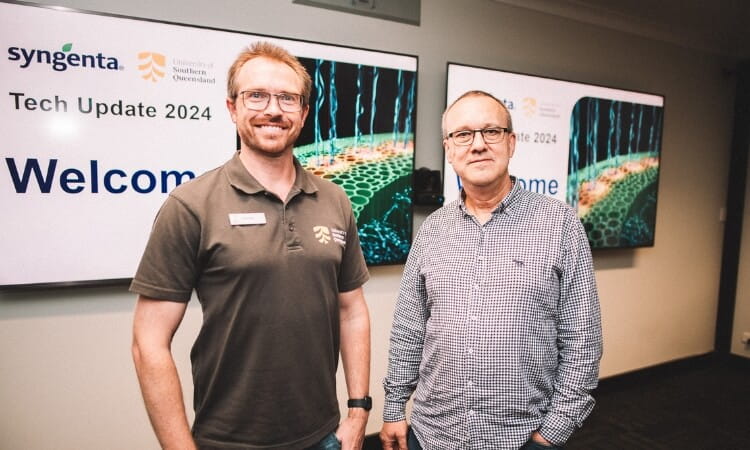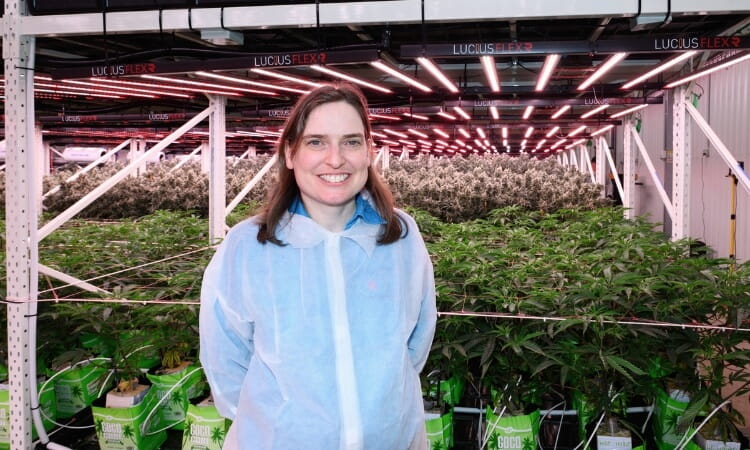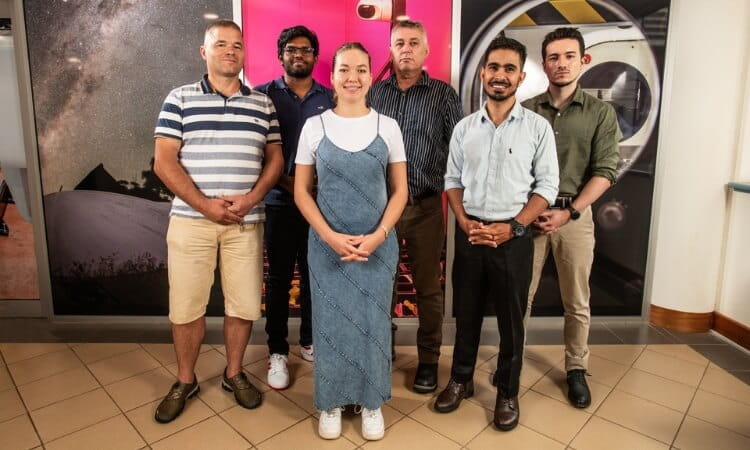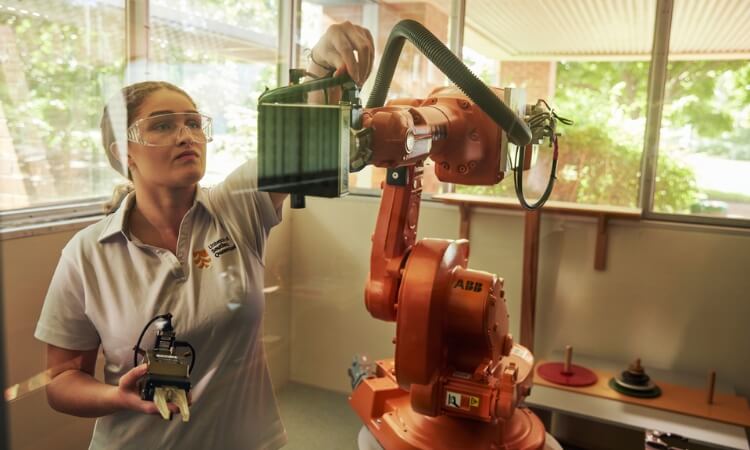Syngenta targeting home-grown ag solutions

A University of Southern Queensland (UniSQ) researcher has attracted the attention of leading agricultural science and technology company Syngenta Australia and will feature in a groundbreaking Virtual Reality (VR) experience set to be showcased at UniSQ next week.
UniSQ Institute for Life Sciences and the Environment (ILSE) Senior Research Fellow Dr Noel Knight has researched the disease progression of crown rot in cereals for many years.
Dr Knight’s body of work looks at cross-sections of healthy and infected wheat stems and applies dyes to help illustrate how the disease progresses through the plant.
This work inspired the hero component of the VR experience, which Syngenta Australia has developed to educate agronomists and farmers about the disease and, in turn, has led to its world-first treatment VICTRATO®*, which has been under evaluation ahead of its eventual commercialisation.
The collaboration between UniSQ and Syngenta Australia took another exciting turn, with Dr Knight being invited to narrate what participants see in the VR experience as they are transported through the microscope into a three-storey model of his research.
“I had written a few papers on the disease progression as part of my PhD, and Syngenta contacted me about animating the crown rot infection process to better communicate the concept to agronomists and growers,” Dr Knight said.
“It’s pretty amazing to think that all those hours under a microscope have culminated into something that could genuinely impact the methods of disease control in the grains industry in Australia.
“This collaboration between UniSQ and Syngenta Australia – a global leader in agricultural development and management practices – is not only beneficial to the University, but also to the wider Queensland and Australian agricultural industries.”
Syngenta Australia Broadacre Campaign Lead Richard Packard said he had worked closely with Dr Knight and the developers to produce the VR experience.
“Through developing this tool, we wanted to find a way to engage with agronomists, farmers, and their various advisors about this devastating disease, which costs the industry $404 million in lost production each year,” Mr Packard said.
“Dr Knight’s research provided the spark of inspiration to help illustrate the plant’s mechanisms and how the disease develops, preventing the movement of moisture and nutrients to the developing grains.”
Find out more about research at UniSQ’s Institute for Life Sciences and the Environment.
- VICTRATO® is not registered. An application has been submitted to the APVMA.
- ®Registered trademark of a Syngenta Group company


